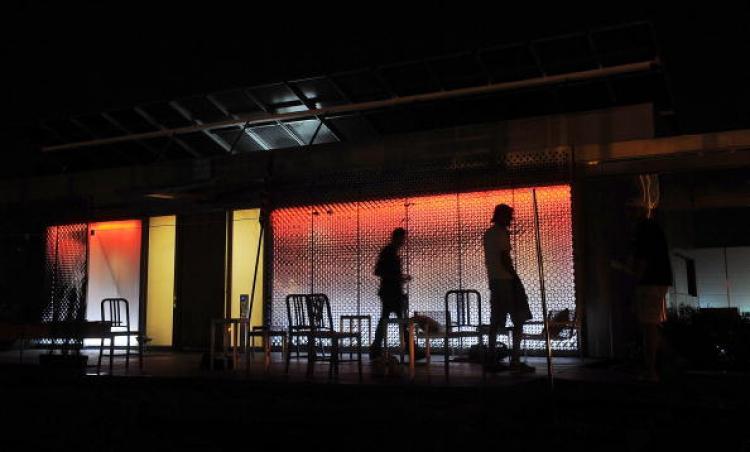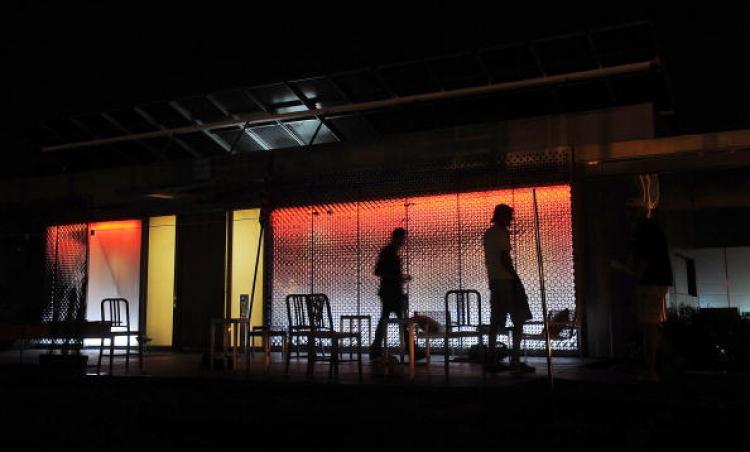Only one percent of the electricity Americans use comes from the sun. Yet the sun is the richest of the power resources from nature and can be used without limit. With suitable designs, solar energy can replace other polluting or nonrenewable resources such as oil, coal, and natural gas. That is why the Solar Decathlon encourages students to “invest time and skills in a new generation of sustainable homes.”
With its first contest in 2002, the Solar Decathlon welcomes college students to make creative, cost-efficient designs of houses operated by solar power. The energy systems are required to be renewable and easy to make with the resources available today. Costs and design are also taken into consideration by the judges. Before each contest, its organizer, the US Department of Energy, provides free training for contestants. Since 2002, approximately 15,000 participants from 92 universities involved in the contest. For the first time, this year´s contest was held outside of the US with the cooperation of the Spanish Ministry of Housing and the United States Government. It was the Solar Decathlon Europe.
Have you ever dreamed of a house with adjustable sliding walls operated solely by solar electricity? A group of students from Virginia Tech, the winner of this year’s Solar Decathlon, can give you one.
The team’s design, named Lumenhaus, features a system of piping underneath the concrete floor using geothermal heating and cooling. A set of fully integrated power roof panels turns energy released by the sun into electricity. In addition, walls on two sides made of sliding glass and an open floor design can expand the total area and bring in fresh air, providing all the comfort a family requires. Room temperature can be adjusted any time by a computer or an iPhone. The team estimated Lumenhaus could be mass produced for about $250,000, making it affordable.
“Our intent with the house was that you wouldn’t have to sacrifice anything you’re used to. A lot of houses that try to be energy efficient become tight boxes with few windows, but we decided to make it as light as possible because that makes it look larger than it really is,” said Corey McCalla, a team member and recent graduate of the Virginia Polytechnic Institute and State University in Blacksburg, Va., usually shortened to just Virginia Tech.
With their reasonable cost, comprehensive heating and electricity systems, and excellent design, the Virginia Tech students won this year’s Solar Decathlon in Madrid, Spain. Other teams came from elsewhere in the United States, and from China, Finland, France, Germany, and Spain.
With its first contest in 2002, the Solar Decathlon welcomes college students to make creative, cost-efficient designs of houses operated by solar power. The energy systems are required to be renewable and easy to make with the resources available today. Costs and design are also taken into consideration by the judges. Before each contest, its organizer, the US Department of Energy, provides free training for contestants. Since 2002, approximately 15,000 participants from 92 universities involved in the contest. For the first time, this year´s contest was held outside of the US with the cooperation of the Spanish Ministry of Housing and the United States Government. It was the Solar Decathlon Europe.
Have you ever dreamed of a house with adjustable sliding walls operated solely by solar electricity? A group of students from Virginia Tech, the winner of this year’s Solar Decathlon, can give you one.
The team’s design, named Lumenhaus, features a system of piping underneath the concrete floor using geothermal heating and cooling. A set of fully integrated power roof panels turns energy released by the sun into electricity. In addition, walls on two sides made of sliding glass and an open floor design can expand the total area and bring in fresh air, providing all the comfort a family requires. Room temperature can be adjusted any time by a computer or an iPhone. The team estimated Lumenhaus could be mass produced for about $250,000, making it affordable.
“Our intent with the house was that you wouldn’t have to sacrifice anything you’re used to. A lot of houses that try to be energy efficient become tight boxes with few windows, but we decided to make it as light as possible because that makes it look larger than it really is,” said Corey McCalla, a team member and recent graduate of the Virginia Polytechnic Institute and State University in Blacksburg, Va., usually shortened to just Virginia Tech.
With their reasonable cost, comprehensive heating and electricity systems, and excellent design, the Virginia Tech students won this year’s Solar Decathlon in Madrid, Spain. Other teams came from elsewhere in the United States, and from China, Finland, France, Germany, and Spain.





